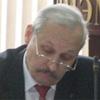Close
2-й ежегодный Форум: Европейская Геополитика - риски и вызовы 2011

-

Terterov Marat
Moderator
Director European Geopolitical Forum. terterov@gmail.com
-

Deniz Altinbas
Expert on Islam in Europe and EU-Turkey Relations
deniz-altinbas@hotmail.com
-

Mehmet Ogutcu
Expert in global energy security matters
ogutcuwiseman@googlemail.com
-

Justin Dargin
Expert in International Energy law and Energy affairs
justin_dargin@hks.harvard.edu
-

Vladimir Sayenko
Leading expert in Ukrainian and European energy & natural resources legislation
vsayenko@sk.ua
-

Marco Giuli
Expert on European Politics
mgiuli@madariaga.org
-

-

Urban Rusnak
Specialist in European energy security
urban.rusnak@mzv.sk
-

Zolotukhin Anatoly
Internationally acclaimed professor
and authority in the energy sphere
zolotukhin.a@gubkin.ru
-

-

Mendikulova Gulnara
Leading authority on the political sociology of Kazakh peoples and nationhood
gmendikul@hotmail.com
-

-

Roshchin Mikhail
Expert on radical Islam in the North Caucasus and Central Asia
easterntraveller@mail.ru
-

Biygautane Mhamed
Expert in North African politics and governance
mhamed.biygautane@dsg.ac.ae
-

LOGAB Nadia
Expert in the sphere of North African geopolitics and economy
nlogab@hotmail.com
 3 Pros
3 Pros 0 Cons
0 Cons

Comments 215
Forum Leaders
I am particulary pleased to welcome our returning participants from last year's events, as well as welcome our new participants, particulary our EGF Affiliated Experts based outside of the EU
February 13, 2011 14:41PM Quote Reply
Forum Leaders
We are all aware of what has been happening in Egypt, and Tunisia, and other Middle Eastern countries. These are challenges that will have an impact on Europe, not in the least due to "our concern" that new regimes in the Arab world may lead to new foreign policy orientations from these countries - which is something that will have an impact on European governments and the West as a whole.
Thus I want to start by asking Deniz Altinbaz - is Turkey immune to the current Middle Eastern (or Arab) domino effect or would you say there is some risk of these street level revolutions spreading to Turkey ?
Inititally, one would think that the democratic credentials of the Turkish government are far stronger than those of the Arab regimes and hence we should not expect protests out on the street in Istanbul, Ankara and other Turkish cities. But then again many of the problems that plague the Arab countries are also applicable to Turkey (poor governance, role of the military, unemployment, etc), so I would like your thoughts on this
February 14, 2011 23:05PM Quote Reply
Forum Leaders
what are the strenghs of the Turkish model that could be instructive for the Arab regimes, given that (like in Tunisia and Egypt), the Turkish military remains the backbone of political stability (as well as secularism) in the country. Is the Turkish model simply not a more politically progressive model of that in the Arab regimes and therefore subject to the same sort of political risks, at least in the current political climate permeating across the region.
Also, despite the friendlier ties between Ankara and Teheran in recent years, what sort of position would you say Ankara would take to the current protests which have been taking place in Iran during the last couple of days ? is it in Ankara's interest to support the regime, or the youthful and progressive opposition ?
I want to talk to you about Europe-Russia-Turkey energy issues, but wanted to get your thoughts on the "political topic of the day" first
February 14, 2011 23:16PM Quote Reply
Decision Makers
Let me share a couple of quick comments:
1. What has happened in Tunisia and Egypt and is likely to occur in the other parts of the region are digitally driven but a reflection of the years long repression, poverty, injustices, nepotism, corruption and longing for freedom. However, it is not sure that they will lead to the institution of genuine democracies. However, we have to see them as positive first steps.
2. Turkey is presented (not by Turks but the West) as a possible model to emulate. There are serious structural differences and long historical backdrop behind the Turkish model which make such comparisons difficult. Turkey has been going through this process since the Tanzimat period in early part of the 19th century - then the first constitution under the Sultan Abdulhamid,the national assembly representive of all key "millets", the collapse of the Ottoman empire,the emergence of a republican Turkey, the introduction of a multi-party democracy in 1950, the taming of the political Islam within the system as Islamists have been admitted to the parliament, the government and the local municipalities as well as to the business world, and AKP experience since 2002. This process cannot be emulated easily. Yet we hope that we do not need to wait for Egypt and others to reach the same degree of (somehow imperfect and now increasingly controlled) democracy and freedoms for another 1
00 years. They may jump start without reinventing the wheel.
3. Whether the street protests could spread from MENA to the Kremlin Inc is a question we should ponder about. Such tradition exists in Kyrgzstan. Ozbekistan could also be affected given the nature of the regime there and difficulty to contain mass discontent. Kazakhstan, Azerbaijan and Turkmenistan can still buy out the opposition with the hydrocarbon revenue flows. Putin is popular. Although the FSU regimes will be advised to be ultra careful on corruption and repression(more than hitherto), I do not see any immediate risks to the plight of the existing establishment.
4. Energy prices will continue to be volatile in view of the fact that two-thirds of the world's oil resources are located in the Middle East/Gulf region. Add to this the CIS resouirces. Geopolitical vulnerability and above-the-ground factors will prove to be more important than the geological successes in the next decade or so.
I will be in Brussels tomorrow night for a series of meetings in the Commission till Friday. We should meet.
Good night to all.
February 16, 2011 17:35PM Quote Reply
Forum Leaders
I wonder what Alikper Alikperov in Moscow - our expert on Islam in Russia and the CIS - thinks of your comment on Middle Eastern street protests spreading to Russia and that part of the world ?
I am not sure about Russia (the country has just gone through so much social conflict in the last two decades and is still in the midst of a slow recovery from Islamist crisis in the North Caucasus, if you can call it a recovery at all), but I would think that (even with its hard line regime) Uzbekistan must be a candidate.
The Kyrgyz dont seem to need to be inspired by the Middle East to overthrown their governments, while people will forget (or would have missed the fact) that many thousands have been out on the streets in Baku and in the Kazakh cities, protesting very similiar grievances to the protestors in the Middle East
ALIKBER, your thoughts ? what are the risks to this spreading to Russia and the CIS ?
I would also like GULNARA MENDIKOLVA'S AND MIKHAYIL ROSCHINE'S views on this when they join the discussion (from Kazakhstan and Moscow)
Also Mehmet, would you say Turkey, given/despite the strenghts of its model (and you sum up its historical evolution nicely above), is immune from what is happening in MENA ?
there is also corruption in Turkey, you know. although is it a case of corruption being spread across the full spectrum/inclusive of all political actors, which rarely stay in power for "30 years" - which could make it difficult for the crowd to take out their vengance on one source alone ?
Look at Bahrainis protesting in that country today and yesterday. The Al-Caliphas have been in power since independance 40 odd years ago with very little STRUCTURAL political reform
Denis - what do you think ?
February 16, 2011 20:44PM Quote Reply
Forum Leaders
..staying with risk and challenges eminating from the Arab World, I want to bring in Justin Dargin, a Harvard (USA) based expert on Gulf energy, who I believe has just arrived in the Gulf as we speak.
Justin:
1/ are Gulf regimes immune to the widening Arab domino effect ? they tend to have the economic/financial muscle to buy off the opposition, but would you say the risk are more challenging on this occassion, particulary in the Gulf states with Shi'ite Muslim minorities (such as Saudi Arabia and Bahrain) ?
2/ would it be too far to suggest that there is some risk to Gulf oil supplies ?
3/ what about gas producing states like Qatar ? I dont suppose anyone from anyone from Qatar Petroleum is going on strike in solidarity with the Egyptian workers or the police who went out to Tahrir to demand better pay and conditions yesterday ?
4/ are there other unforeseen risks to Gulf States/Gulf energy coming out of all this ?
February 14, 2011 23:24PM Quote Reply
Forum Leaders
traditionally the question of political Islam in Russia is quite seperate from developments in the Middle East, but you may know that up to 70,000 demonstrators marched in Belgrade, Serbia, on February 5, calling for an early election and "down with the Serbian government". No one would have really thought that the Middle Eastern domino effect would have spread to the Balkans.
Hence you may not think that it can spread to Russia (which already has its ongoing problems including recent terrorist acts at airports), or at least the Muslim parts of the country in the North Caucasus (which already have no shortage of "fires to put out") but I would be interested in your thoughts ? February 14, 2011 23:33PM Quote Reply
Decision Makers
we are following "revolutoinary waves" with mixed feelings. I am very intersted on comments and opinions at forum.
In the meantime we are hosting today a 20th aniversary Prime Minister´s summit of Visegrad cooperation (SK, PL, CZ and HU) with guests from D, UA and A. Energy Cooperation and Energy Security is one the key topics today. If anybody has a particular interste to central european developments (particulary north-south energy corridor), do no hesitate to ask...
February 15, 2011 07:40AM Quote Reply
Forum Leaders
One immediate question I have for you is: do you see any parallel between what is happening now in the Arab countries (and Iran) with the democratic revolutions in Eastern European in 1989 ? you lived through this off course, so I would be interested in your views
For me, its a case of the "glass being half full" in Egypt and Tunisia - the regime has been overthrown, but what is coming out of it ? in Egypt and Tunisia, the short term effect is that the military has taken on far more power than it had before (ie, Parliament has been dissolved and the constitution suspended). this could lead to democracy in the long run - but what guarantee do we have ? the role of the international community will be vital - this is America's defining moment in the Middle East (more so than that of the Arabs) February 15, 2011 10:31AM Quote Reply
Forum Leaders
I would be interested in your views. New Europe is the most vulnerable part of the EU given its dependancy on Russian supplies (esp gas) but seems to be least represented in the dialogue.
Do you feel that New Europe should/can play a greater role in the Europe-Russia energy dialogue, and can you perhaps suggest some existing institutions of European energy security where New Europe/or its diplomats can play a greater role ? February 15, 2011 10:36AM Quote Reply
Decision Makers
Forum Leaders
But would you not say that there is any sense of "Death to America, Death to the Shah" on the Arab Street at the moment ?
I know this has been predominantly a revolt against ageing, corrupted Arab rulers, but these rulers have for all those years been propped up by you know who, and they have also kept the peace with you know who
none of these Arab rulers are totally independant from "external influences". hence by virtue of the fact that this is a revolt against authoritarian Arab rule, is this defacto not also a revolt againt neo-colonial rule in the region ? particulary with a view to Pax American, which has firmly established itself in MENA after the Iraq-Kuwait war.
For me, Saudi Arabia remains the one to watch. imagine if the Saudi regime were to fall and unknown forces were to take control of the country's governing and military institutions !
I dont know what some of our other participants think on this ?
Justin, you are in the Gulf at the moment I believe ?
February 16, 2011 21:47PM Quote Reply
Decision Makers
Decision Makers
Forum Leaders
Thank you, Professor Kreutz, for joining into the forum with these comments. a question for you which may be simple to word but perhaps less simple to answer:
Why do socio-econonomic problems and lack of democracy in some parts of the world lead to street revolutions which have the capacity to topple regimes (ie, Tunisia, Egypt), while in other parts of the world (which also have the same type of problems) we are not even seeing the slightest semblance of such protests (ie, Uzbekistan, Tadjikistan) ?
ALIKBER: I take your point about Russian Muslims (or ex-Soviet Muslims) being different to Muslims in the Middle East, but the grievances are the same. Would you say that your average Uzbek is more loyal to President Karimov than your average Egyptian to Mubarak ?
Mikhayil Roschine, what do you think ? February 20, 2011 00:00AM Quote Reply
Forum Leaders
Off course, the question of political stability in that neighbourhood is a vital one for Brussels and will continue to be.
However, do you feel that the EU has not been giving enough attention to its Southern neighbours assisting countries like Tunisia, Algeria, etc improve their governance, prospects for democracy and overall political/economic management - hence the mess in which we now find ourselves ?
Ultimately it is those countries themselves which are responsible for their own sovereignty, but could we have done more ?
France has, off course, always pushed Brussels towards its Euro-Med agenda, but where do you feel the overall failings (lack of attention) have been and what are now the likely repercussions of the North African political crisis for the EU ? more illegal migrants or is it greater than that ?
Do you feel more EU resources will be directed into the Maghreb, and will this take away Europe's attention from its Eastern neighbourhood ?
Does the EU, under the leadership of persons such as Baroness Ashton, have the political willingness to be more active in these regions in order to help prevent further crisis and assist with democratisation ? February 15, 2011 14:31PM Quote Reply
Decision Makers
It would be extremely hazardous to draw conclusions since the events are still in the making and outcomes are far from clear. However, we do not risk getting mistaken when we say that Europe was completely unprepared to such a sudden political turmoil in North Africa. This implies a lack of attention which partly reflects the difficulties of setting up the external action service in the aftermath of the Treaty of Lisbon. Notwithstanding, the EU member states on the southern flank of Europe are demonstrating a lack of comprehension which is even worse, considering how relevant their interests at stake are.
I would not say that Europe did not pay attention to governance and democracy, as I am not sure that the social unrest fully originated by a demand for democracy. This view would legitimate the neocon assumptions on the democratic contagion. Indeed, there are few doubts on the fact that the events of these days are unrelated to the American intervention in Iraq and Afghanistan. I have rather the impression that we should rather pay attention to inflation and food prices, as well as the frustration of young educated people facing a structurally high level of unemployment, which turned out to be intolerable especially in the light of the fact that these countries showed good growth rates and dramatic level of corruption among the ruling elite. This is not all about democracy, and not even about Islam. It is quite surprising how much analysis is paid to hypothetical seizing of the Suez channel by the Muslim Brothers, whilst the housing and food prices have never been tracked.
All our foreign policy initiatives towards North Africa, including the Sarkozy’s Union de la Mediterranée, were based on a close collaboration with the ruling leadership. Everything relied on the assumption of the stability of the regimes and focused mainly on commercial penetration, protection of investments, and control of migration. The assumption is gone, but the focus did not change. It seems that European countries are delegating the whole issue to their ministries for home affairs instead of their ministries for foreign affairs. The event has been compared by the Italian government to the fall of Berlin wall not because of its political implications, but rather because of the outcomes in terms of migration. Obviously, an environment which is affected by an economic crisis, austerity measures and in some case – like in Italy – chronic political crisis is not the ideal one to approach such an historical evolution in North Africa. So far, this resulted in an exchange of accusation between the EU and the most exposed countries, reflecting a major weakness of the enlarged Europe: half of the Union is not interested in the evolutions in Africa as it is not touched by the migrations of North Africans and does not even have economic interests in the issue. The other half is concerned only as for the impacts on the domestic levels with no vision whatsoever about the role Europe should play.
In this context, any reflection about leadership in foreign policy is secondary. The impression is that there is not a “European” interest, and without a definition of what the interest is, it will be rather difficult to have a foreign policy regardless of who holds the post of high representative. As a result Europe is just throwing money at the situation (17 million EUR) with no strategic approach. As for assistance to democratisation, I believe that the North African people is enough aware of their needs to choose which political system suits them best.
February 16, 2011 10:30AM Quote Reply
Forum Leaders
So, in a nutshell, you are saying that:
1/ Europe was taken by surprise by the events in its southern neighbourhood over the last month (like it was taken by surprise during the Russia-Ukraine gas crisis of 2006, and lessons did not seem to be learned by January 2009)
2/ the street revolutions in MENA were not necessarily driven by the inexorable drive for democracy (American style) but rather by high inflation, lack of jobs, and basically a chronic social crisis capped by authoritarian/rotten governance
3/ divisions/incompatible priorities between southern tier EU states and those elsewhere within the EU undermine any sense of a "European" policy towards the problems "down south"
4/ the EU is throwing money at the problem instead of taking a strategic approach and trying to propose workable solutions to the crsis
if that's the case, I have the following question(s):
taking into account the objectives of the Lisbon Treaty, what then is the purpose of the EU High Rep for Foreign and Security Policy ?
Is the good lady's External Action Service an institution capable of dealing with external crisis (and I mean genuine crisis such as that now taking place on Europe's doorstep)which will have an impact on Europe and can it provide any real value in crystallising (and implementing) this long-discussed idea of a Common European Foreign Policy ?
do we live in hope ? or will European policy continue to be a collection of national foreign policies/bilateral initiatives ?
I think this is important also for the debate about collective European security, since if Europe will not be able to contribute to the resolution of soft threats to its security such as those currently eminating in MENA, it will continue relegating itself to the position of the Arab Gulf States when it comes to questions of harder security - by continuing to outsource security/defence from our friends across the Atlantic (who will then continue to play good cop/bad cop with Middle Eastern regimes
February 16, 2011 21:06PM Quote Reply
Decision Makers
Coming to your further questions, I would say that the Lisbon Treaty has the merit of having unified the bureaucracies of the high representative for foreign policy and the Commission's DG RELEX. This is an undeniable achievement, though the process was not that smooth.
That said, we have to come to terms with the fact that foreign policy is, along with taxation, the most difficult policy area to integrate as national preferences are in these realms supposed to be inspired respectively by national security and electoral concerns. As such, Van Rompuy was right saying that direction comes before speed. The problem here is that events are faster than Europe, and there is no quick fix for this. Obviously this call for patience can hardly ignore the show offered by one member state trying to block a (meaningless) resolution on Libya with the aim of defending a "strategic" bilateral partnership with a leadership which is already on the run.
As for the security dependence, the debate in Southern Europe is now dominated by migration. Collective security issues seem to be still rather marginal to the debate on the arab turmoil. Your right concerns about the Europe's ability to build up an independent system of defence will probably not be substantially affected by what is going on these days. February 21, 2011 15:50PM Quote Reply
Forum Leaders
Kaweh: if we consider the question of EU external energy policy and particulary the issue of security of supply with respect to new gas resources from the Caspian, how would you sum up EU energy policy/diplomacy towards the Caspian (including any movement on Southern Corridor related projects) during 2010 ?
were Brussels' initiatives overall successful or are we witnessing a degree of under-achievement ? Energy Commissioner Ottinger and European Commission President Barosso already toured Baku and Ashghabad last month - how do you assess the EU's prospects of working with Caspian energy suppliers in 2011 and what would be your core message to them ?
I would also like MEHMET OGUTCU's take on this February 15, 2011 14:47PM Quote Reply
Decision Makers
The important next step is to get access to the huge Turkmen reserves and this will be challenging. The unresolved status of the Caspian Sea makes it difficult for any pipeline project to connect Turkmenistan with Azerbaijan. My message to the Commission is that there is a great opportunity right now to push Azerbaijan and Turkmenistan towards an agreement on their border delineation and allow for a free flow of gas to Europe. There are significant commercial gas reserves on Turkmenistan’s Caspian shore which are looking for a market and could be brought onstream in the immediate future. However, Russia has reduced its Turkmen gas imports dramatically since the financial crisis hit European gas demand and is not currently looking into increasing imports. Iran’s market is saturated and doesn’t need more Turkmen gas and the pipeline to China is on the other end of Turkmenistan, with no connection to the Caspian shore. Today would be an excellent moment to capitalise on this constellation and push towards an agreement which would profit Turkmenistan, Azerbaijan and the EU.
February 16, 2011 15:50PM Quote Reply
Forum Leaders
On your first point, can you clarify as to which supply agreement is anticipated for this summer - are you saying that the European Commission will sign something with Baku ?
while this is clearly important (for EU supply security), does the EU have the capacity to sign a gas supply contract (like long term supply agreements with Gazprom) with a supplier country ? it is not an energy company after all. or are you talking about that Caspian Consortium that the Europeans embarked upon last year, to establish a centralised gas procurement entity for the purchase of Caspian gas ?
on your second point, is there any evidance available to suggest that Mr Barosso and Mr Ottinger lobbied this position on their visit to Turkmenistan and Azerbaijan last month ?
also, what about the "elephant in the room" ? would there be any reaction from Gazprom to initiatives of this nature ?
V.V.Putin and his cabinet are coming to Brussels on February 24 - do you think energy will be on the agenda ? (broad question)
February 16, 2011 21:20PM Quote Reply
Decision Makers
Coming back to my first point: the supply contract will be signed between the consortium of Azerbaijan’s giant offshore gas field Shah Deniz (BP operated) and one of the three pipeline consortia which I mentioned above. So we are talking here about a commercial deal, the European Commission only acts as an outside facilitator.
There isn’t anything that Russia can do to prevent Azerbaijan from finalising their deal with the European pipeline consortia. Gazprom has made commercially attractive offers to Azerbaijan and offered to buy up all available gas export volumes, but as mentioned earlier, Azerbaijan wants to position itself as a strategic partner to the EU and raise its international standing. Therefore it will push ahead and become the first contributor to the Southern Gas Corridor and withstand the Russian wooing.
I haven’t come across any indication that Mr. Barosso or Mr. Ottinger actively engaged in an effort to push towards an Azeri-Turkmen deal. It must be stated that the issue of the Caspian Sea delineation is very complex, Russia and Iran, both for their own reasons, are opposed to the construction of a trans-Caspian gas pipeline that would allow for direct gas exports to Europe. It will cost Azerbaijan and Turkmenistan a good amount of political courage to upset their neighbours and push ahead on their own. The European Commission has so far not been able to convince them, that this is a risk worth taking.
On your last point I’m not aware of Putin’s the specific agenda in Brussels and somebody else might be better position to answer that question. However, given the importance of the energy trade to both sides I can’t imagine for it not to be a part of the discussions.
February 19, 2011 06:19AM Quote Reply
Forum Leaders
1/ Why do those consortiums that you mentioned (ie, the European pipeline groups) need to have the European Commission lobby on their behalf ? in principle these sort of groups are strong enough in their own right to do their own lobbying, as IOCs tend to have stronger bargainging power than their home governments on some occassions
2/ do you feel that Russia is losing its level of influence over some CIS energy producers such as Azerbaijan, despite Moscow's geopolitical influence in the CIS ?
We tend to veiw Azerbaijan as one of the more "independant" foreign policies in the CIS (ie, less susceptable to Russian influence) - is Baku coming out of Moscow's shadow - or is it already out of it ?
MEHMET - what do you think ? or to put the question another way: is Baku more independant and multi-vectoral (perhaps even pro-European) in its foreign policy orientation than Moscow is able to leaverage influence (over Baku) ?
February 20, 2011 00:10AM Quote Reply
Decision Makers
2) Marat I think it is fair to say that Moscow is continually loosing influence. Azerbaijan was “lost” back in the early 90’s when international oil companies streamed into the country, took over valuable assets and agreed on building the Baku-Tbilisi-Ceyhan oil pipeline, which is transporting oil from the Caspian directly into the Mediterranean Sea avoiding Russian territory.
Turkmenistan was “lost” in 2009 when China started first direct imports from the gas rich Turkmen steppe across Central Asia.
Kazakhstan is currently looking for ways to expand its export infrastructure towards China and across the Caspian via Azerbaijan to western markets. So also here we see Russian influence over the Kazakh energy sector diminishing.
It won’t take long before Uzbekistan starts exporting its gas to China and breaks Russia’s monopoly on Uzbek gas trade.
Under Putin the Russia gained some ground in reasserting itself, however over the long-term the Kremlin is fighting a loosing battle. It can’t stop China or Europe from strengthen their relationship with the Caspian states.
February 22, 2011 14:22PM Quote Reply
Forum Leaders
not good news for Moscow, looking forward ! March 15, 2011 14:28PM Quote Reply
Forum Leaders
How do you assess investment patterns into exploration of new hydrocarbon energy resources in Russia during 2010 - do you feel we are seeing sufficient investments for current market demand (particularly in the sphere on new natural gas deposits such as Shtockman, Yamal, and others) ? or do you feel substantially more is required (I realise the figures may be daunting).
Do you feel more foreign investment is required and do you feel that Russia is doing enough (taking the right steps) to attract FDI into upsteam energy projects ?
Do you feel foregn energy companies are "getting a good deal" in Russia - Shell, for eg, had difficulties in the Russian far east, but is currently looking to expand in the Russian market, while BP has bought a major chunk of Rosneft, the Russian national oil company
Do you feel this is a good deal for both BP and for Russia ?
How do you generally see Russian upstream energy investments developing during the next 12-24 months February 15, 2011 14:55PM Quote Reply
Forum Leaders
and to VLADIMIR SAYENKO in Kiev, sticking with Russia but linking the discussion to Ukraine, there is much discussion at the moment about a likely merger between Russia's Gazprom and Ukraine's national gas pipeline operator, Naftogaz Ukraine.
Many experts view these developments as being politically driven and a reflection of closer ties between Kiev and Moscow since the election of V Yanukovich to the post of President of Ukraine last February (2010)
while there is substantial (I would say) concern, from external stakeholders in EU-Russia-Ukraine energy ties, that such moves could result in Gazprom gaining control of Ukraine's gas pipeline network, Ukrainian experts suggest that the country's legislation prohibits this strategic national asset (ie, Ukraine's gas pipeline grid) from falling under the control of an external player (ie, Gazprom)
what are your views on this - is the Ukrainian legal system "robust enough" to withstand a possible political agreement between the Yanukovich team and the Kremlin over an envisaged Russian takeover (of Ukraine's gas grid) ? or can the law be changed overnight "if there is political will at the top" ?
also, you may be aware that Ukraine has joined the so called Energy Community Treaty, an EU driven initiative to integrate the energy markets of certain EU neighbour countries into EU legal standards/procedures. This will require that Ukraine change its gas industry legislation and reform its energy markets (in order to abide by the Treaty's obligations, which are binding). Do you feel that Ukraine will live up to Brussels' expectations, in this respect ?
KAWEH - $64 question: if Russia were to take control of Ukraine's gas pipline infrastructure (be it a soft or hard takeover), would you see the need for projects such as NABUCCO or South Stream to go ahead (taking projected European gas demand into account) ?
February 15, 2011 15:10PM Quote Reply
Decision Makers
From a European security perspective I would argue that more pipelines and more diversification of supply will lead to more security of supply. Sorting out the Ukrainian transit challenge would only increase the reliability of supply from Russia. Caspian gas supplies on the other hand will help diversifying the European gas import sources and provide a more stable supply framework. We will need both to ensure a reliable supply balance. February 16, 2011 16:03PM Quote Reply
Forum Leaders
so you are saying, Kaweh, that there is sufficient gas demand (looking ahead) for both the Ukrainian corridor (and investment into its rehabilitation) and the Southern Corridor gas pipeline projects (at least some of them) ?
MEHMET, what would you say ?
and also I would like JUSTIN's thoughts ?
I am skeptical to be honest - Gazprom's planned gas exports for 2011 are still substantially less than pre-crisis level (140-145 bcm for 2011 Vs 159 in 2008), and the mood is cautious within the company, I would say (this position was also reflected in their annual Gaz Rossiya conference which I attended in Moscow last November) February 16, 2011 21:28PM Quote Reply
Decision Makers
We also have to keep in mind that Caspian volumes will be relatively small compared to Russian exports and only start towards the end of this decade. We are talking of around 10 bcm from Azerbaijan by the early 2020s and there is still no sight of Turkmen exports.
February 22, 2011 14:40PM Quote Reply
Decision Makers
The idea of a merger between Gazprom and Naftogaz was first raised in April 2010 when Kiev was pushing for a better gas deal with Russia. Quite a few political forces in Ukraine were prepared to lay down their lives to prevent this from happening, or at least try to reap political dividends by opposing the merger. Even the politicians in power did not express uniformity in supporting the merger. The idea almost died, but then in November 2010 there were some statements from the Ukrainian Government confirming that negotiations were in progress and parties were discussing evaluation of assets. I have the impression that the deal is still in its infancy, and nothing is yet set in stone.
It is true that Ukrainian law prohibits privatization of certain strategic assets, such as the Ukraine's gas pipeline network. However, if there is political will, I do not believe that the legislative prohibition will be the biggest impediment for the current Government, just like some creative people managed to change the Constitution overnight but putting some pressure on the Constitutional Court. There are numerous ways to structure cooperation between Gazprom and Naftogaz, a classical merger is certainly not on the agenda. For example, we might see some intergovernmental treaty that will create the legal basis for a joint venture between Gazprom and Naftogaz, with both parties contributing certain assets into its capital. As the Government enjoys majority in the Ukrainian Parliament, such treaty can be ratified promptly, like the treaty extending the stay of the Russian Black Sea fleet in Sevastopol, and it will prevail over the national legislation.
Still, in my opinion, the Government�s stance toward Gazprom is somewhat wary. In the end, the merger or any other form of giving up control over the pipeline will only make sense if in return the Ukrainian Government can get a stable stream of revenue and Ukrainian consumers can get cheaper gas. This might be possible if Naftogaz gets a concession for the development of gas fields in Russia. I suspect that the Ukrainian Government will try to seek a solution that does not provoke political instability, while also making investment in the modernization in the Ukrainian gas transportation system more attractive financially than the South Stream or other alternative routes. I am sure that lawyers will find the way to dress up the politician's will.
As regards to Ukraine joining the ECT, I can certainly see the advantages in creating proper legal framework, for example by allowing certain investment disputes to be arbitrated. ECT gives the local market a new policy and legal framework as well as incentives for growth. I think that the Government of Ukraine will try to show some efforts in implementing the ECT, but I doubt that it will live up to Brussels' expectations.
February 18, 2011 16:19PM Quote Reply
Forum Leaders
My impression resulting from a number of recent trips to Moscow was that a deal between Gazprom and Naftogas was close to completion, that Yuri Boyko (Ukraine energy minister) was constantly in Moscow negotiating with the Russians and that the biggest issue now was how to "sell the actual merger" to public opinion in Ukraine.
that's the impression I recieved from Russia (or at least from some of its experts)
but your view - a view from Ukraine - is that there is still much negotatiating to be done before a deal is fanalised, if it will be finalised at all. This is really interesting, as it implies that the Russians are not really "ahead of the game" as they try to make out to be. Do you think that other Ukrainian experts would agree that a deal is still very much in its infancy ?
Im quite interested in getting a feel for the position of Ukrainians towards the much discussed Gazprom-Naftogas merger
the point is doubly interesting if linked to your comment that "the (Ukrainian) government is somewhat wary of Gazprom. Our initial position (as a community of experts) in mid-2010 was the the Yanukovich government is moving Ukraine back into much more of a policy alignment with Moscow (on many economic and political matters), but your comment makes us think twice about making such conclusions. There are a number of people revising their position from mid-2010 (on Ukraine's more overtly friendly policy towards Russia)
on the ECT, looks like you feel that Ukraine has a long way to go before it "gets there".... February 20, 2011 00:26AM Quote Reply
Forum Guests
Thanks Urban, for coming into the discussion. One immediate question I have for you is: do you see any parallel between what is happening now in the Arab countries (and Iran) with the democratic revolutions in Eastern European in 1989 ? you lived through this off course, so I would be interested in your views For me, its a case of the "glass being half full" in Egypt and Tunisia - the regime has been overthrown, but what is coming out of it ? in Egypt and Tunisia, the short term effect is that the military has taken on far more power than it had before (ie, Parliament has been dissolved and the constitution suspended). this could lead to democracy in the long run - but what guarantee do we have ? the role of the international community will be vital - this is America's defining moment in the Middle East (more so than that of the Arabs)
Касательно процессов демократизации и параллелей между тем, что сейчас происходит в странах Арабского Востока с демократическими революциями в странах Восточной Европы в 1989 году, на фоне сегодняшней знаменательной даты 20 лет со времени создания Вышеградской группы (Чехия, Польша, Словакия и Венгрия) четко отметил, в свое время, польский журналист К.Геберт «центральноевропейцы выучили словарь демократии, но пока не постигли ее грамматики». Как отмечают эксперты, уровень и качество демократии в странах Вышеградской четверки оставляют желать лучшего. Налицо довольно сильные ностальгические настроения. Видны «издержки модернизации» – имеются евроскептики и клерикалы (Польша), возродились коммунисты (Чехия), существуют проблемы с «welfare state» (Венгрия), слабо гражданское общество. Политика носит более элитистский, «персоналистский» и коррумпированный характер, нежели в традиционных демократиях. Таким образом, трудно назвать состоявшимися, а тем более – демократическими государствами Боснию и Герцеговину и анклав Косово; немало проблем с целостностью и стабильностью в Сербии и Македонии. Следует также обратить внимание на процессы демократизации в странах Балтии, таких как: Латвия и Эстония, где на протяжении всего периода посткоммунистического развития значительная часть русскоязычного населения была лишена политических прав. Именно это не позволяет отнести вышеперечисленные государства, демонстрирующие «неплохие» результаты по многим другим параметрам, к числу тех, где транзит демократизации был успешно завершен.
Исходя из вышесказанного можем говорить о двух основных схемах общества – западную и восточную. По этому поводу, отметим высказывание известного, украинского ученого, профессора, доктора полит. наук Ирину А. Кресину «На Западе сложилась модель конкурентного отношения государства и гражданского общества с достаточно автономными и самостоятельными структурами. На Востоке мы можем наблюдать другую модель гражданского общества, более "лояльного" в отношении государства, с более послушными, сателлитными организациями».
Таким образом, у людей всегда остается потребность продолжать совершенствование по бесконечности к абсолютному идеалу и никакой политической системой их невозможно удовлетворить. Поэтому вопрос о том, может ли демократия смениться другими формами правлениями имеет ясный ответ: это случалось ранее, происходит сейчас и, в принципе, будет происходить в будущем.
February 15, 2011 18:57PM Quote Reply
Decision Makers
Политический ислам в России, конечно же, имеет свою специфику, но то, что подразумевается под этим определением в России и на Ближнем Востоке - совсем разные вещи. В России политический ислам предлагает салафитскую, фундаменталистскую альтернативу светскому обществу и суфийским братствам, инкорпорированным в структуры местных традиционных обществ. На Ближнем Востоке палитра политического ислама гораздо шире.
February 16, 2011 22:05PM Quote Reply
Forum Leaders
short but very insightful comment, and particulary interesting that you mention Russian Muslims as sympathising more with Serbs (slavs-Christians) than Bosnians (Muslims) during the Yugoslav wars of the 1990s.
...and I would agree with you that Russian Islamists offer more a Salafi-Sufi alternative, rather than the much broader spectrum of interpretations that radical Islam carries with it in the wider-Middle East
the paradox is that Russian Islamists tend to be called Wahabis (Wahabisti), which is not really the case in many ways
March 15, 2011 14:39PM Quote Reply
Forum Guests
Only common problem is unemployment. Similar unemployment levels exist in European countries as well. Problem is not unemployment, but combination of unemployment, inequalities and an oppressive rejime in these Middle Eastern countries. Turkey has an oppressive government which has a very lim ited tolerance for the opposition, so the situation can be seen as a similar problem. But, Turkey has an oppressive “government” not a “regime”, so there is no need to start a chaos. A few months later there will be general elections. If Turkish people think that there is an intolerance and oppression against “traditional Turkish” views, then they have the chance of not voting for the same government. The major difference of Turkey is its opportunity to change the government through “normal” elections, without use of violence. Different than the other states, Turkey is the region’s oldest democracy with a strong state tradition inherited from the Ottoman Empire.
As a result, although it will be wrong to put these Middle Eastern countries and Turkey in the same basket, there may occur some protests in Turkey, as previously happened under the name “Republic Demonnstrations/Rallies”. But the reason and the motive behind would be completely different. Organised by Kemalists, these demonstrations were defending secularism against Islamism. Therefore if a movement starts, the reason would be goverments’ anti-democratic, anti-freedom, intolerant, fanatic “measures”.
When we look at the events from Turkey’s side, Turkish people as well as government support the protest movements in the Middle East countries. The region is one of the instable in the world and Turkey suffered a lot from the “regional” problems. Turkey would prefer democratic and free states in its region. Stability of the region would serve to all the countries’ interests, particulary in terms of trade. If these rebelling countries make a successful transition to democracy, they will probably be more eager to establish closer ties with Turkey.
February 17, 2011 13:04PM Quote Reply
Forum Guests
Исходя из названия данного Форума, отмечу знаменательные «геополитические» события которые произошли в 2010 году. Сегодня стабильность архитектуры общеевропейской безопасности во многом зависит от эффективной деятельности трех ключевых институтов – НАТО, ЕС и ОБСЕ:
1) Североатлантический альянс по-прежнему остается наиболее влиятельным и эффективным компонентом, способным быстро и адекватно реагировать на современные вызовы и угрозы. Трансформации в системе европейской безопасности, которые произошли в последние годы, нашли свое отражение в принятой на саммите НАТО в Лиссабоне (19-20 ноября 2010) новой Стратегической концепции НАТО, главная цель – адаптация альянса к новой среде безопасности на глобальном и региональном уровнях, при этом пункт о коллективной обороне сохраняется. Таким образом, закрепление глобальной роли НАТО не уменьшает ее в роли гаранта европейской безопасности;
2) в течение 2010 года произошло увеличение веса Европейского Союза как самостоятельного игрока в современной общеевропейской архитектуре безопасности. Имплементация Лиссабонского соглашения существенно ускорила процесс институционализации ЕС касательно безопасности, внешнего и оборонного компонентов, что способствовало формированию реальным содержанием Общей внешней политики и политики безопасности (ОВПБ) и её неотъемлемой составляющей – Европейской политики безопасности и обороны (ЕПБО). На протяжении 2010 г. ЕС осуществляет одновременно более 30 военных и гражданских миссий в 4 регионах мира: на Европейском континенте (Молдавия / Украина, Балканы), Ближнем и Среднем Востоке, в Африке и Азии. Изменения во внешней политике и политике безопасности ЕС соотносятся с обновленной Европейской стратегией безопасности, которая отражает видение государств-членов ЕС касательно изменений в глобальной среде безопасности, а также новейших угроз и вызовов, одной из которой, отныне, есть угроза энергетической безопасности (речь идет о необходимости учета «российского фактора» в Европе). Однако, вопрос о характере дальнейших взаимоотношений между ЕС и НАТО в сфере безопасности остается открытым. Таким образом, не исключено, что новая Стратегическая концепция НАТО в ближайшие годы будет имплементирована в дополнительном заключении уже существующего пакета договоренностей "Берлин плюс" в новом соглашении ЕС–НАТО.
3) 1-2 декабря 2010 г. в Казахстане (г. Астана) после длительного перерыва состоялся саммит ОБСЕ, который стал первым собранием лидеров стран-участниц данной организации со времени проведения предыдущего саммита в Стамбуле (ноябрь 1999 г.) Декларация саммита ОБСЕ «Навстречу обществу безопасности» отразила наличие консенсуса стран-членов касательно необходимости придерживаться общих международных норм и принципов выполнять взятые на себя обязательства в рамках ОБСЕ, в ближайшие годы разработать план действий и обновить отдельные документы в сфере безопасности. В памятной декларации саммита было определено, что в 2011 г. в ОБСЕ будет председательствовать Литва, в 2012 г. – Ирландия, в 2013 г. – Украина.
Саммит ОБСЕ в Астане стал первым шагом на пути к доверию и взаимопониманию между ведущими странами, а Инициатива Казахстана как страны-председательствующей в ОБСЕ в 2010 г. о проведении очередного саммита этой организации в Астане показал осознание ведущими странами про необходимость поиска консенсуса в вопросах совместного реагирования на новые угрозы и вызовы современного мира (локальные конфликты, терроризм, организованная преступность, пиратство, наркотрафик, торговля людьми и нелегальная миграция, изменение климата, кибератаки, противодействия негативным последствиям глобального финансового кризиса). Тот факт, что саммит ОБСЕ в 2010 г. был впервые проведен в стране, не относящейся к европейской идентичности, подтверждает: 1) Стремление все большей части стран-членов сформировать единую евроатлантическую и евразийскую зону безопасности («от Ванкувера до Владивостока»); 2) попытку ОБСЕ восстановить свою роль и стать более влиятельным центром принятия решений по вопросам международной безопасности.
К сожалению, несмотря на актуальность очерченного круга вопросов, по итогам саммита не было принято никаких концептуальных документов, а противоречия и разногласия все еще сохраняются, о чем свидетельствует отказ ряда лидеров ведущих стран принять в нем участие (Отказались от участия в саммите президенты США – Б. Обама, Франции – Н. Саркози, Узбекистана – И. Каримов, Премьер-министр Великобритании Д. Кэмерон).
На саммите ОБСЕ в Астане был достигнут консенсус относительно необходимости создания единого и неделимого евроатлантического и евразийского пространства безопасности от Ванкувера до Владивостока. Саммит также продемонстрировал возможность достижения компромиссов в вопросах укрепления системы контроля над вооружениями, что открывает перспективу начала переговорного процесса в этой сфере уже в 2011 году.
February 17, 2011 15:52PM Quote Reply
Decision Makers
Yes, I just arrived in the Gulf, in the thick of it, so to speak.
You posed some very topical questions.
I would conclude the following:
1) One of the key issues to remember about the protests is the significance of poverty and economic stagnation as a driving force. In many, if not all, of the protests, the protesters were angry about being marginalized or excluded fr om the national wealth. Therefore, the crux of the protests fr om which nearly everything may be derived is the fragmentation of the social contract and the exclusion of large segments of the population. Of course, poverty is not the only issue, but it is a major one that we must remember in our analysis.
If we look at where the protests are spreading in the Gulf, it is in relatively (by Gulf standards) impoverished countries or neglected regions (also populations) within wealthy Gulf countries.
Yemen and Bahrain (with very little energy production) have been engulfed in protests, while in Saudi Arabia, agitation has been with excluded social groups, and in Kuwait, it has been the so-called Bedoons (state-less locals, or people without citizenship) that have been the main force behind the political unrest. Therefore, unless major concessions are granted in the Gulf countries that have a minority problem, such as combating discrimination and more job opportunities, the original grievances will likely remain simmering. However, at the same time, because these are minority groups we are dealing with, the overall impact may be limited in terms of regime stability. We could analogize the situation in Saudi Arabia and Kuwait to the Paris riots in 2005 wh ere North African youth took to the streets, the Sarkozy administration was in little danger of collapse. This distinguishes a civil disturbance from a revolution.
In short, the protests will have an undeniable impact on the Gulf countries, but it will be in terms of either bringing the grievances of minority groups into sharper focus or through stimulating protests from these groups. But Saudi Arabia, Kuwait, Qatar and the UAE have little to fear of mass protests.
2) I conclude that suppositions that minority protests could feasibly directly threaten Gulf energy supplies would be a slight overstatement of the scope of the riots, as well as the goals of the protesters themselves.
In contrast to the current protests, the Arab nationalist inspired agitations of the 1950s and 1960s were activated by calls against imperialism and resource nationalism.
As a result, these protesters took it upon themselves to sabotage pipelines and call for oil embargoes on Western countries, particularly, after the Suez Canal crisis.
Current protests, to the contrary, are inwardly directed, there may be minor enmity against what people perceive as Western complicity behind the maintenance of the ruling regimes, nonetheless, the main blame is placed on domestic issues, with little concern (at the moment) of any alleged Western interference. Therefore, I really don't see energy supplies being disrupted, even in the worst case scenario. This, however, does not address how markets are likely to react, the price of oil may be high throughout the crisis, the so-called "fear premium," international oil companies may be hesitant to invest if there is continuing unrest, if the governments are forced to increase subsidies to the populace in a bid to win support, this could lim it (as with PEMEX in Mexico) the NOC's ability to increase investments in the energy sector in the face of declining production rates. Also, in the largest popular revolution in the Middle East, the Iranian revolution, oil supplies were not cut off or embargoed once by the Islamic regime, even though the present regime is through and through anti-Western. This is a key point to remember; even the Iranians were not willing to sacrifice national income for a symbolic move.
3) No, Qatar is not likely to face any of the protests that are rocking the Arab world. Simplistically; they have a well-functioning welfare state, small population, and a leader who has been liberalizing for years even without widespread protests to force him. Any conceivable protests in Qatar would revolve around immigrant workers, but it will not be connected with the situation in Egypt or Tunisia.
4) The unforeseen risks are the ones I stated near the end of my answer to question 3, to reiterate, I believe the major impact to the major energy producing Gulf States would be the following:
a) Continued unrest could cause a sharp and lasting spike in the international price of oil; this sharp price increase is connected more with speculation, as production rates will likely not be impacted. Production rates would only be impacted if in the case of Saudi Arabia, the protests spread to labor and general strikes begin to cripple Aramco's production, although I do not foresee this happening. February 21, 2011 14:47PM Quote Reply
Forum Leaders
I guess "higher than average" oil prices are here to stay for some time; although I think we need to have a more in depth discussion about why exactly instability in countries like Jordan and Yemen is leading to higher prices for Saudi crude.
there is almost space for a conspiracy theory in this
however the real benchmark will be if Saudi Arabia goes (the way of Egypt and Tunis), but you seem to think this is unlikely
March 15, 2011 14:47PM Quote Reply
Decision Makers
Moreover, public institutions have received governmental instructions to well serve and treat citizens. For instance, I, myself, have noticed cops changed their tones were talking to people. Also bureaucratic procedures are noticeably being eased. Algerian fight anti-corruption is being more and more successful…etc
However, Algerian authorities could be done way better in order to improve Algerians’ socio-economical situations considering the State revenues. The government has just injected $286 billions (five-year program) to boost the economy, build more infrastructures, assure social housing, and to create more jobs that “hopefully” will ameliorate the standard of living. Yet, vast majority of Algerians do not have enough trust that they will feel tangible improvement in their daily life after such amount of money is spent.
The recent violent demonstrations proved that the only way to make authorities listen and positively respond to youth demands was by demonstrating “violently”. So, what is expected to happen next is that young Algerians will keep expressing their disagreement with economic/political decisions by this kind of demonstrations.
I also want to mention that demonstrators never claimed the change of the regime; they rather claim a fair distribution of power and wealth. I don’t expect any demonstrations for that purpose (overthrowing the regime) in at least the 3 years to come. The Algerian experience of 10/05/1988 was not very “pleasant” to all those who survived the last decade. People’s demands were executed (change of constitution, more democracy, change of economic orientation, lower prices…etc) but the country did not live any better for the next 12 years that followed 1988 events. It is why I am very curious to see what will happen in Tunisia and especially Egypt after the “success” of the “people revolution”.
So, to sum it up, it is likely to see the Government investing the state revenues in projects and programs that aim to improve people’s life and keep them “silent”. The regime will thus survive, however the president will certainly leave by the end of his term, or at any uprising that may demand his leaving.
Again, those were my own readings of the situation: (ça n’engage que moi)
Comments?
February 21, 2011 16:02PM Quote Reply
Decision Makers
March 6, 2011 17:18PM Quote Reply
Decision Makers
Concerning the democratic part you mentioned, I do not know if democracy is really the solution for a country with such complicated circumstances. The army had no choice but to repress the "democratic" elections that resulted in the election of the Islamist exterimist political party in 1990 (FIS). If democracy were to be the solution for economic and other types of developments, then I don't think I would be able , as an Algerian muslim woman, to be sitting in front of my desk now typing in English, because one of the ideas of the FIS was no schooling for females, to say the least.
I say, Ex-Algeria president Chadli had no choice but to leave his position to the army. And if you are familiar with what happened those days, Chadli till his last seconds as a president didn't want to cancel the election results and wanted to let "democracy" run, but the army (general Khaled Nezar) HAD to force him to do the opposite.
One thing I didn't get well, when you say "more repressive policies exercised on Algs" it implies that repressive policies are already exercised on them. Well, as a normal Algerian citizen who had the chance to interact with many middle eastern and north african people, I say repression is not that much of a problem. It is true, corruption is present, bureacracy is present, but a cop fir instance is the last guy to hurt an Algerian citizen, which is not the case of many countries from the region.
Again, the solutions that the government gave are the good news, they still need to follow up with the decisions they make and the projects thet initiate till it is all well done.
I still don't see changing the regime as a solution, although I don't expect the president to leave before the end of his term.Just a quick note on the current demonstrations that are happening systematically every sunday in Algiers; those are led by an opposition party leader (Saiid Saadi) who is cheering for the so called democracy, and it is funny because he has been the general secretary of his party since its birth on 1989 ! Ok enough said on democracy sir. I just call him Saiid Samedi: samedi means saturday, his day of weekly demonstrations. He also tron the algerian passport and is known as the french baby!
Bref, If Algerians want a change, they should start by themselves: it is how people live in their little famililes, how they raise their kids, how they keep their values and work for the best of their country. It is not the fault of Boutef that once one man had died because his public doctor stolen time and left office when she was not supposed to, to go to her best friend's party. It is not his fault that the young kids prefer to over sleep then go play football rather than to go to schools. Eventhough schools are 100% free.
N.L March 10, 2011 18:02PM Quote Reply
Forum Leaders
so, no regime change forseeable in Algeria in the near term (although the President could leave early).
I guess the 1988 riots and the national tragedy which followed during the 1990s, means that restraint is likely
I think we will have to come back to Algeria and other neighbours in a seperate discussion dedicated to the "Middle East in transition"
I hope you will be able to join us for this March 15, 2011 14:51PM Quote Reply
Decision Makers
thank you Marat for this extremely interesting exchange of views.
Quote S.Nagornyy
Исходя из вышесказанного можем говорить о двух основных схемах общества – западную и восточную. По этому поводу, отметим высказывание известного, украинского ученого, профессора, доктора полит. наук Ирину А. Кресину «На Западе сложилась модель конкурентного отношения государства и гражданского общества с достаточно автономными и самостоятельными структурами. На Востоке мы можем наблюдать другую модель гражданского общества, более "лояльного" в отношении государства, с более послушными, сателлитными организациями».
It would be interesting wehre exactly you draw the line between East and West. I do not agree with Prof.Kresina assumption about competition model between state and civil society at the West. I find those relations more complementing than competing each with other. As far as level of democracy in Central Europe concern, I think that problems mentioned in your comment are well known in "EU 15" as well. What makes the difference is lower level of state organisation and self-organisation of population in Central Europe in comparison to old Europe. In this context the role of civil society and self-organisation are interdependant.
Quote Marat:
would be interested in your views. New Europe is the most vulnerable part of the EU given its dependancy on Russian supplies (esp gas) but seems to be least represented in the dialogue.
Do you feel that New Europe should/can play a greater role in the Europe-Russia energy dialogue, and can you perhaps suggest some existing institutions of European energy security where New Europe/or its diplomats can play a greater role ?
I fully agree that New Europe is underrepresented in EU-Russia energy dialogue. There are some reasons for that: limited human capacities in New Europe, effect of long term supply contracts and high level of dependance on Russia´s supplies. I see new winds in this area. Developments in January 2009 put everybody in politics on alert and as we see in conclusion of latest European Council the energy diplomacy is emerging even on European level. Energy Community Process is a good example of involvement of new Europeans in energy dialogue with neiborhood. Hopefully Energy Charter Process would be also refreshed by higher presence from countries "in between" Brussels and Moscow. February 22, 2011 08:30AM Quote Reply
Forum Leaders
Thanks to everyone for the last round of comment contributions to the forum. Greetings from Kiev, Ukraine by the way. Urban and I are here participating in a high level geopolitical conference (although I think Urban must be back in Slovakia by now)
we have had particulary interesting comments on Algeria from Nadia, so I invite people to have a glance at these and perhaps cross comment
I will make some moderator's remarks tomorrow, from my home city (original home city) Odessa. Lets keep the discussions open for a few more days
I believe we may have some more comments on the Middle Eastern crisis to come February 25, 2011 16:42PM Quote Reply
Forum Leaders
good point that last one - I hope there will be greater scope for New Europe to play a more meaningful role in the Energy Charter Process, which needs more than a "face lift" if it is to be brought back to any genuine relevance in wider-European energy security March 15, 2011 14:55PM Quote Reply
Forum Guests
Following the changes and upheaval in the Middle East i see one main line of potential comparison with the fall of Communism in Eastern Europe in 1989. Not so much in the uprising (or revolutions, call them what you will) pattern, modus operandi or reasons as in the aftermath. Forcing a president out does not change a regime. Changing a set of people at the top does not result in immediate tangible benefits and does not guarantee a better future for the masses.
The transition of Eastern Europe has been a messy and painful affair for the majority of the regular people in those countries. Twenty years later most of these countries are EU members and function decisively as liberal market democracies. But that does not mean the politics and politicians in power in some of them are not still tainted by association with the past or by their own corrupt practices. Capitalism and liberal democracy are messy and do not ensure an orderly transition or prosperity for the masses in any way. The question is this: will the people of Egypt, Tunisia, and other countries in the region that may yet see sweeping winds of change at the top, have the patience and understanding needed to rebuild their social, economic and political systems? This is a long and arduous process with no guaranteed outcomes. The danger as I see it is that people will get fed up and develop unrealistic expectations--which will only lead to disappointment.
Also, with the exception of Mubarak and his inner circles, how likely is it that the political class of Egypt will see significant changes soon? After all, the military still pulls the strings there and will most likely try to implement a gradual pace of change in a direction that suites its interests as well. Or maybe not, but you are the Egyptologist, as are a few other distinguished members of EGF, so I would like to hear your opinions on how thing may evolve in the region.
As for Algeria, I appreciate Nadia's input--i am just not so sure that all those measures, some promised and some in the process of being implemented, are enough to stave off the tide of discontent. The housing crisis is huge, the unemployment for young people is high, the regime is cracking down relatively hard on protesters and its opponents, the military is in control. You also have AQIM active, an ongoing unresolved border dispute with Morocco (Western Sahara and Polisario Front linked), the Libyan implosion next door (with rumours of Polisario helping Gaddafi mount an offensive) are all troubling signs to say the least. So it may turn out to be too little too late on the side of President Bouteflika and his regime--after all, these are not politicians used to negotiations, flexibility or public scrutiny. Time will tell, soon perhaps. February 26, 2011 01:05AM Quote Reply
Decision Makers
It is worth mentioning that despite the fact that Algeria, Morocco, Libya and Tunisia are geographically close and share similar socio-political and economic histories, the people’s motivations and the governments’ reactions to the current movements have been quite different. Although factors like poverty, political repression and the wide spread corruption in the region have been the main drivers for the calls for change in all these countries, the way they have been tackled and their outcomes have not been the same.
After the independence of North African countries, the populace aspired for free countries, for democratic institutions to be build and run by the ordinary people and for equal economic and social opportunities. However, they did not realize that they shifted fr om a direct to indirect forms of colonization. They did not realize that the departure of the French, for example, and the end of their imperialistic goals only paved the way for greedy and self-centric individuals to take over and establish a new form of colonialism. The generations of the 60s till late 90s fought fiercely for their rights and called for change helplessly. Yet, the dictators who governed these countries found in Machiavelli and his doctrines the material they needed to succeed in repressing and spreading fear in the hearts of their people and paralyzing their actions. This worked for them perfectly till recently when the waves of globalization made the world connected and exposed, and; thus, their brutal actions witnessed and questioned by the international community.
To analyze the current movements in North Africa and make futuristic assumptions as of what they will lead to in the long run, it is important to frame them within their own socio-political contexts. The scope of demonstrations that occurred in Tunisia was not exceptional nor drastically different fr om the other ones that had taken place before in Tunisia and in other North African countries. Yet, the uncontrollable role of the media, especially Aljazeera Channel, the networking websites and the pressure fr om the international community exercised heavy pressure on Bin Ali and made him lose control over his people and himself and; therefore, escape the country. Does this necessarily mean that the same model could be successfully applicable to other countries in the region? Evidently, it was so for Egyptians who succeeded in removing Hosni Mubarak, but it did not result in the same fate for other countries in region especially for Libya.
The excitement and hopes of the Libyans were buried by the demolished houses and blood of Libyans who were massacred by Al-Gaddafi. While the world was surprised by the escape of the Bin Ali and the surrender of Hosni Mubarak, it was astonished by the brutality of Al-Gaddafi who learned from the “mistakes” of his Tunisian and Egyptian counterparts and started massacring the Libyans under the eyes of international community to demonstrate to the whole world that it is only “his way or the high way”. Wh ere is this taking Libya? In my opinion, Al-Gaddafi’s self-esteem-which is the main driver for his brutality towards his people-would not let him to easily surrender the country to the Libyans. Al-Qaddafi thinks that he has been deceived by the people he freed from King Idris in 1969; therefore, he decided to wage a war against the traitors and fight it till the last drop of his blood. Moreover, from his perspective, I would imagine that he considers Bin Ali and Husni Mubarak as cowards and he wants to teach history a lesson that he is the fearless leader who did not give up his “throne” and who fought to protect and maintain it.
The case of Morocco is interesting and could be regarded as a unique one in North Africa. While the countries of the west expected riots to raise against the King and the monarchy- to their surprise- the few demonstrations that have taken place were against corruption, the dominance of Al-Fassi’s family in the Parliament and were by no means addressed to the person of the King. The King Mohammed 6 is known in Morocco as the “King of the poor” and is very close to the hearts of Moroccans. His presence in the country secures political stability and unifies the different ethnic groups that exist in the country ranging from Amazighs to the Arabs and Sahrawis. I reckon that the Moroccan Parliament will witness significant changes especially in lim iting the presence of Fasi families in the government and giving equal opportunities to ordinary people.
The case of Morocco is interesting and could be regarded as a unique one in North Africa. While the countries of the west expected riots to raise against the King and the monarchy- to their surprise- the few demonstrations that have taken place were against corruption, the dominance of Al-Fassi’s family in the Parliament and were by no means addressed to the person of the King. The King Mohammed 6 is known in Morocco as the “King of the poor” and is very close to the hearts and minds of Moroccans. Despite the high unemployment rates, poverty and social injustice, Moroccans are certain that their King wants the best for the country, but it is not in his hands to make a radical change to the way things are currently. The first thing King Mohammed 6 did when he succeeded his father was to remove Idriss AL-Bassri (the Moroccan Minister of Interior Affairs from 1979 to 1999) who was infamous for his brutality in repressing demonstrators especially in 1981 in Casablanca and Fes in 1990. The presence of Mohammed 6 in the country secures political stability and unifies the different ethnic groups that exist in the country ranging from Amazighs to the Arabs and Sahrawis. I reckon that the Moroccan Parliament will witness significant changes especially in lim iting the presence of Fasi families in the government and giving equal opportunities to ordinary people.
To conclude, I believe that North Africa is in its way to fundamental reforms. Socio-economic conditions will improve only if the people from the top realize that their old ways of repressing people are no longer effective and start to gradually share power and wealth with their citizens. Yet, we should not expect magical change overnight. It will take numerous generations before we can see the fruits of these reform and their impact on these countries. March 6, 2011 16:37PM Quote Reply
Forum Leaders
I think that we will have to come back to this (as mentioned above with Nadia) in a seperate EGF online event dedicated to developments in the Middle East.
I think we should schedule this for April, once the dust settles in Libya a little (if it will settle at all ?) and we can start to make some comments on what is happening in Egypt and Tunisia
Will Mhamed's comment prove right, that "North Africa is on its way to fundamental reform", or will it be echo's of Eugen's comment, in asking whether "the political class will see any genuine change in Egypt at any time soon"
this is the key issue - continuity or change ? and what will be the impact on Europe, the oil price, etc ?
March 15, 2011 15:04PM Quote Reply
Forum Leaders
Finally, it is left for me to say that, on behalf of the Brussels based European Geopolitical Forum, I wanted to sincerely thank you all for contributing comments to our online event
Many interesting views exchanged, none of which could have happened had it not been for the intellectual property which you provided
We will now move towards the production of a short summary document, highlighting some of the key views/positions which emerged during the event
We will distribute this to all participants in the near future
We are also planning to have a dedicated online discussion on the developments in the Middle East, later on during the spring and hope that we will see many of you once again during that meeting
Best wishes from Brussels
Marat
March 15, 2011 15:42PM Quote Reply
Decision Makers
Прежде всего, мне хотелось бы выразить свое восхищение за разработку такого важного научно-практического форума, где обсуждаются насущные проблемы современного мира.
Хотелось бы предложить несколько комментариев по поводу последних событий, происходящих на Ближнем Востоке. Не премину сразу отметить, что это только мои наброски о сложившейся ситуации.
1. Думается, все, что сегодня происходит на Ближнем Востоке, имеет внутренние и внешние причины. Внутренние проблемы прекрасно изложил Г-н Мехмет Огутчи, и поэтому я не стану повторяться. Что касается внешних причин, а главное последствий, то в настоящий момент, на мой взгляд, происходит кардинальная перестановка акторов в геополитическом отношении. Ослабление позиций США, Саудовской Аравии, Израиля и Турции происходит вследствие некорректной многолетней политики в регионе, а также тех сил, которые заинтересованы в дестабилизации, ослаблении, что и приведет к захвату лидирующих позиций на Ближнем и Среднем Востоке. Задайте извечный вопрос: «Кому эта ситуация на Ближнем Востоке выгодна?», и все станет понятно… Последующая расстановка сил в Регионе может даже некоторых удивить. Я считаю, что сейчас предпринимается попытка восстановления чьего-то влияния в Регионе, с одной стороны; потуги новых претендентов на присутствие и влияние в Регионе – с другой, а с третьей - выработки совершенно новой стратегии ведения внешней и внутренней политики некоторыми странами самого Региона. С четвертой стороны должны были быть страны ЕС, однако, как и постоянно, в последние десятилетия, они отстают. Но об этом несколько позже.
2. По поводу – перекинуться ли революционные события в Турцию – однозначно – нет, потому что Турция сильна во многих отношениях, что нельзя сказать об ее соседях – Сирии и Иордании … Думаю, что именно в этих странах возможны выступления студентов и, как это читалось в курсах научного коммунизма – революционная ситуация… Кроме того, не следует забывать и о сложной ситуации в Йемене и Алжире…
3. Отношение Европы к событиям на Ближнем Востоке и последствия. Настал тот момент, когда старушке Европе пора перестраивать свою политику, а самое главное, свое отношение на проблемы не только в Регионе, но и в самой Европе. Пора отходить от потребительских (что хорошо прослеживается в скандале с двумя чиновниками Кабинета министров Франции) и снобистских позиций.
То, что Европе необходимо пересмотреть свои позиции мнимого превосходства над другими, уже очевидно для всех. Вы хотите, чтобы люди на вас работали, поднимали экономику и т.д. Но когда приходят «смутные времена», в Европе сразу вспоминают, что это иностранцы (в лучшем случае), или же начинаю бороться с «мусульманской» угрозой, забывая о том, что, когда эти люди были нужны, их не спрашивали ни об их этнической или религиозной идентичности, приглашая в страну и разрешая им работать там. Речь не идет о незаконных трудовых мигрантах – о них разговор особый.
Думается, что следует пересмотреть отношение к Ирану, который сосредоточил серьезные силы для противостояния…
Для Европы ситуация на Ближнем Востоке чрезвычайно опасна и уже дает знать о себе простым гражданам. Как известно, в Италию уже прибыло более 5 тысяч беженцев из Туниса, вследствие чего итальянское правительство уже объявило режим гуманитарной катастрофы… И это только начало…
4. Вопрос Марата по поводу распространения вышеозначенных событий на Казахстан. На ситуацию в Казахстане они вряд ли могут повлиять, однако такая возможность не исключается в Центрально-азиатском регионе. Нестабильность в некоторых постсоветских республиках до сих пор сохраняется, что связано как с внешними, так и внутренними условиями, угрозами и вызовами. В регионе имеют место, так называемые «факторы уязвимости» - незаконная и нерегулируемая миграции, наркотрафик и т.д. В сочетании с ситуацией в Афганистане и Пакистане, с одной стороны, проблемой бедности и слабо развитыми социально-экономическими условиями в некоторых государствах ЦАР, все это приводит к реальным угрозам в Центральной Азии, однако причины этих угроз совершенно иные, нежели на Ближнем Востоке.
5. Поэтому, предлагаю провести Международную научно-практическую конференцию, где соберутся ученые и практики, и обсудят варианты выхода из сложившихся геополитических угроз. Ближневосточный конфликтный узел надо распутать только мирными средствами, так как там гибнут в течение многих лет ни в чем неповинные люди… И еще один момент. Ближний Восток, по предсказанию древних мудрецов, может стать полем битвы Армагеддона. А это угроза для всего человечества… March 15, 2011 19:52PM Quote Reply